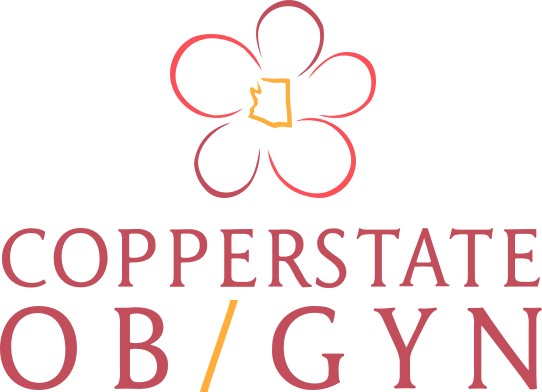About 10 to 15% of couples are affected by infertility. Thus, more people are becoming curious about the concept of a “fertility diet”. If you are trying to conceive, you can make healthy food choices that help your body prepare for pregnancy. Foods that are good for fertility can boost your reproductive abilities and increase your chances of getting pregnant.
Some foods aid fertility and some foods inhibit it. In this article, we will identify the best diet for fertility and some foods to avoid.
The Best Foods to Eat For Fertility
Your food choices can directly affect your chances of getting pregnant. To increase your fertility, incorporate the best foods for fertility into your diet.
Healthy Fats
Replace animal fats with nuts, olive oil, grapeseed oil, and avocado to get your recommended fat intake. Monounsaturated fats decrease inflammation in the body, which promotes ovulation and fertility. Choose salmon (instead of red meat), which is high in omega-3 fatty acids. The fatty acids help increase blood flow to the reproductive organs and may help regulate reproductive hormones.
Fruits and Vegetables
Choose foods that are rich in antioxidants. Studies show that women who eat more folate and folic acid tend to have higher rates of reproductive success. They have higher implantation rates, clinical pregnancies, and more live births. Leafy greens, such as spinach, arugula and broccoli, have folate and vitamin B. Doctors recommend making sure half your plate is full of fruits and vegetables. Eating a healthy amount of antioxidants can also help egg quality and the phytochemicals are beneficial for fertility. Pineapples are another popular choice. You can try juices and shakes with a lot of vegetables if you don’t love raw veggies.
Protein
Women who consume more plant protein rather than animal protein are less likely to have issues conceiving. Reach for beans, legumes, nuts and seeds to get enough plant-based proteins in your diet. You can also get more protein from fish, turkey, chicken, and pork rather than red meat. These protein sources are also high in zinc and iron, which are essential for a healthy pregnancy.
Complex Carbohydrates
Eat fewer highly processed carbs. Carbs that come from whole grains, vegetables, and beans digest slowly and don’t cause a spike of insulin. Grains such as quinoa, millet, and amaranth also keep you fuller longer and are better for your blood sugar levels. Less-processed carbs also have pregnancy-friendly nutrients such as vitamin E, B vitamins, and fiber. Choose carbs with high amounts of fiber, which can help regulate hormones and blood sugar.
High-Fat Dairy
Low-fat dairy may decrease the fertility rate while eating high-fat dairy at least once a week may increase it. One study showed that women who consumed one or more servings of high-fat dairy a day were 27% less likely to be infertile. Dairy is high in fat and a good source of fat-soluble vitamins, such as vitamins A, D, E, K, and K2. If you’re currently eating low-fat dairy, try swapping one high-fat dairy product for your low-fat dairy once a day.
Foods to Avoid in a Fertility Diet
Just like some foods can increase your fertility, other foods can decrease your fertility. Avoid these foods to get pregnant faster.
Sugar and Sweeteners
Concentrated amounts of sugar can create issues with hormone balance. High blood sugar creates high insulin levels, which can wreak havoc on your reproductive hormones. Stay away from candies, desserts, energy drinks, and sweet teas. Sugary sodas are associated with ovulatory infertility. Unfortunately, artificially-sweetened sodas aren’t a great substitute, because artificial sweeteners cause cortisol levels to rise and this can prevent ovulation. If you have a sweet tooth, try less-processed sweeteners such as agave syrup, honey, and maple syrup.
Trans Fats
Foods with trans fats, such as packaged snack foods, animal products, and some kinds of margarine increase insulin levels. High insulin is linked to hormonal and metabolic changes that negatively affect ovulation. To get enough fat in your diet, eat more healthy fats from avocados, olive oil, and nuts.
Refined Carbohydrates
Your body quickly digests foods like cakes, cookies, and white bread and turns them into blood sugar. When you have higher blood sugar, your body compensates by raising insulin levels. Higher insulin levels can cause your body to create fewer reproductive hormones, which can affect egg maturation and ovulation. Instead of refined carbs, try to eat more complex carbs such as quinoa, vegetables, and beans.
Caffeine
Some studies show that caffeine correlates with delayed conception, although other studies do not find a strong link between the two. Most studies show that cups of coffee or tea do not affect ovulation, but can lead to dehydration. Dehydration can prevent mucous membranes from staying moist, which can affect the cervical fluid. Experts suggest limiting caffeine to under 200 milligrams a day. Herbal tea is a good replacement for caffeinated tea.
Alcohol
No safe level of fetal alcohol consumption has been established. Not only that, but excessive alcohol consumption is linked with ovulation disorders. It’s recommended that you avoid alcohol completely if you’re trying to get pregnant.
Dealing with infertility can be frustrating, but there are some easy changes you can make to your diet to increase your chances of getting pregnant. For more information, check out our 7 Tips for How to Get Pregnant article.
Are you a patient of Copperstate OB/Gyn? Access your patient portal here, or share your experience with us on Google!
Sources:
- https://www.ncbi.nlm.nih.gov/pmc/articles/PMC4172634/
- https://www.parents.com/pregnancy/my-body/nutrition/what-to-eat-when-trying-to-get-pregnant/?slide=slide_de531581-d833-430c-b0c8-4a291337ef1b#slide_de531581-d833-430c-b0c8-4a291337ef1b
- https://www.healthline.com/nutrition/16-fertility-tips-to-get-pregnant#6.-Eat-more-fiber
- https://www.sciencedaily.com/releases/2007/02/070228064902.htm
- https://pubmed.ncbi.nlm.nih.gov/9054236/
- https://www.mayoclinic.org/healthy-lifestyle/getting-pregnant/in-depth/female-fertility/art-20045887#:~:text=Heavy%20drinking%20is%20associated%20with,consumption%20hasn’t%20been%20established
- https://www.copperstateobgyn.com/how-to-get-pregnant/

